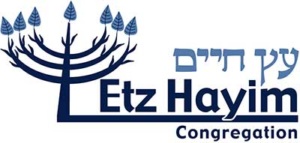The Torah reading for Rosh Hashanah tells the story of Hagar and Sarah and the banishment of Hagar and Ishmael.
Here’s the back story—
First the bad and uncomfortable news—
Back in chapter 16, Lekh L’kha, Sarai shows concern that she has not borne Avram a son and is concerned about his and her legacy. Sarai has an Egyptian maid, a slave, Hagar, whom she gives to Avram as a concubine. The status here is noteworthy. Hagar was merely a maid to Sarai, and has now been elevated (?) to concubine status. Hagar conceives and now sees herself as better than her former mistress. Sarai, perhaps feeling jealous, entreats Avram to send Hagar away, but he wants no part of that. When Sarai berates Hagar, she runs away. An angel of God finds her by a spring and encourages her to return with God’s guidance, delivering the message that God will not desert her.
Moving on, in the next chapter God tells Avram to walk in God’s ways and establishes a covenant between them. God now changes Avram’s name to Abraham and Sarai’s name to Sarah, as bond to this covenant. God will make him “exceedingly numerous.”
Hagar gives birth to a son, and, some time after, Sarah conceives. Abraham is 100 years old and she is 90. She too has a son whom she calls Yitzkhak—from the word laugh because Abraham was incredulous that he, at 100, and Sarah, at 90, would conceive.
Consider, now, that Ishmael is a teenager, 14 years old, and there’s a new baby in the family. Sarah sees Ishmael laughing, possibly mocking her and her son. She wants mother and child gone. Again, Abraham is troubled that Sarah wants to banish Hagar and his son. God reassures him that she and the boy will be cared for. He sends them off with bread and a skin of water, which soon run out. Hagar is in despair and believes she and her son will die. God sends an angel to comfort her by telling her not to despair; God will provide for her and her son, reminding her of God’s earlier promise that her son will be a founder of a great nation.
The angel, who calls her by her name, tells her to pick up her son and open her eyes to see the well in front of her. They are saved and continue in life, perhaps back in Egypt, and prosper as God promised.
Now the good news as I see it.
In the early part of their journey, Avram and Sarai went out of his father’s house to follow a path to be guided by God.
While there are promises and hints of the future bond between God and the not-yet-nation of Israel, there is no covenant.
Between the birth of Ishmael and conception and birth of Isaac, God has firmly established the covenant and changed the names of our first patriarch and matriarch as a sign of God’s favor. This sets in motion the ultimate journey to Israel. But God needs to also set up the instruments to accomplish this journey. Hagar was a slave from Egypt, and clearly known as such. God referred to her as “slave,” only the angel called her by name. So when Sarah insists that Abraham send Hagar away, she is God’s instrument in the beginning of this journey to its eventual destination.
Difficult as it is to see the harsh treatment of Hagar and Ishmael, she, too, has played a part in the establishment of the Israelite nation. Yet she is not forgotten or doomed forever. God sees that she is cared for and able to go on to a different life, being the progenitor of another great number of people.
Sarah, however unwittingly, has carried out her part of God’s ultimate plan.
The views and opinions expressed herein are those of the authors and do not necessarily reflect those of the Synagogue or Board of Directors.

